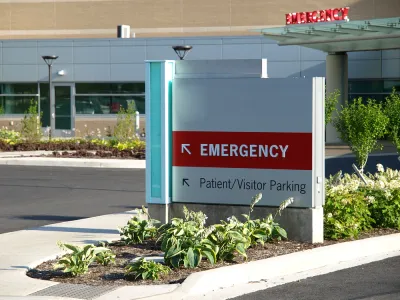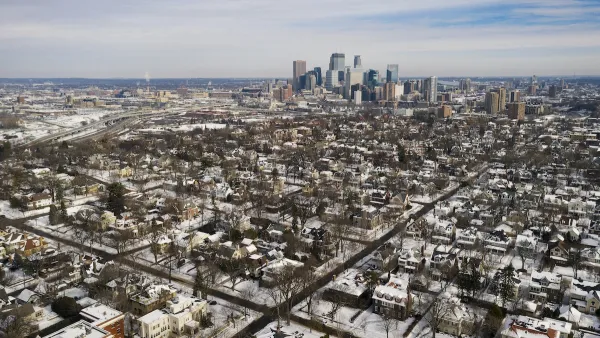Given the fact that many homeless patients end up costing the system a lot more than average, several Chicago hospitals are considering ways to house them.

Many chronically homeless people also struggle with chronic illness. Permanent housing could reduce their costly dependence on the public medical safety net. Kristen Schorsch writes, "Research shows having a home reduces ER trips and hospitalizations as well as jail and detox time. A permanent address also boosts the rates that patients regularly see doctors who focus on prevention. Hospitals save money by not providing unnecessary care for little or no reimbursement."
Meanwhile, the University of Illinois Better Health Through Housing program has been piloting such an effort for several years. During 2015 and 2016, "The system spent about $250,000 to house 26 patients. The average monthly medical costs per person declined from about $5,900, to around $4,800 after they found housing."
FULL STORY: Why more Chicago hospitals are getting into the housing business

National Parks Layoffs Will Cause Communities to Lose Billions
Thousands of essential park workers were laid off this week, just before the busy spring break season.

Retro-silient?: America’s First “Eco-burb,” The Woodlands Turns 50
A master-planned community north of Houston offers lessons on green infrastructure and resilient design, but falls short of its founder’s lofty affordability and walkability goals.

Delivering for America Plan Will Downgrade Mail Service in at Least 49.5 Percent of Zip Codes
Republican and Democrat lawmakers criticize the plan for its disproportionate negative impact on rural communities.

Test News Post 1
This is a summary

Test News Headline 46
Test for the image on the front page.

Balancing Bombs and Butterflies: How the National Guard Protects a Rare Species
The National Guard at Fort Indiantown Gap uses GIS technology and land management strategies to balance military training with conservation efforts, ensuring the survival of the rare eastern regal fritillary butterfly.
Urban Design for Planners 1: Software Tools
This six-course series explores essential urban design concepts using open source software and equips planners with the tools they need to participate fully in the urban design process.
Planning for Universal Design
Learn the tools for implementing Universal Design in planning regulations.
EMC Planning Group, Inc.
Planetizen
Planetizen
Mpact (formerly Rail~Volution)
Great Falls Development Authority, Inc.
HUDs Office of Policy Development and Research
NYU Wagner Graduate School of Public Service




























